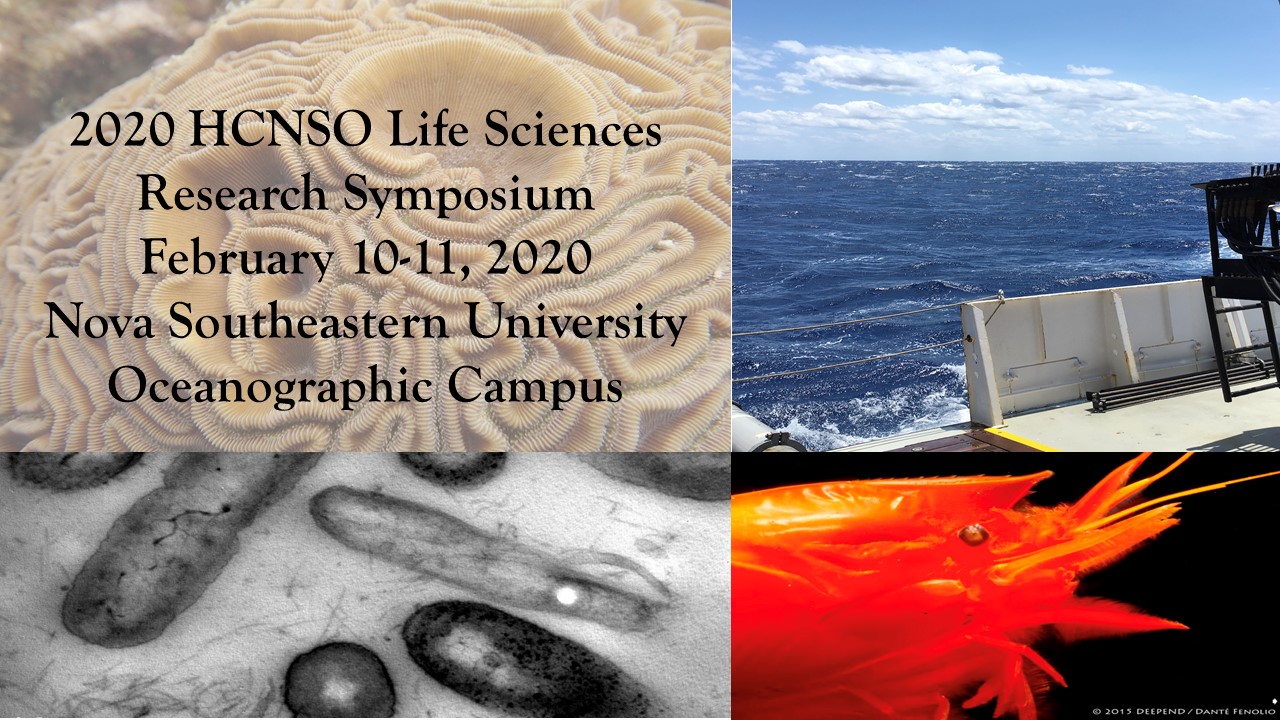The Currency of Climate Change - Tracing carbon through coastal ecosystems
Location
HCNSO Guy Harvey Oceanographic Center Nova Southeastern University
Start
2-11-2020 3:30 PM
End
2-11-2020 3:45 PM
Type of Presentation
Oral Presentation
Abstract
Global change is occurring due to human induced perturbations of the carbon cycle. Coastal ecosystems, such as mangroves, seagrass beds, and coral reefs play a disproportionate role in the global carbon cycle compared to their relatively small footprint. Tracing the flow of carbon through these systems is critical to evaluating their role in and susceptibility to ongoing climate change. This talk will highlight some of the ongoing and future research projects in the NSU Marine Biogeochemistry Laboratory. Research focuses on tracing carbon flows in coastal systems, including measuring methane and carbon dioxide fluxes across different interfaces (e.g., air-sea, sediment-water, and soil-air). Current projects include measuring the calcium carbonate production rates of coral reefs, using novel techniques to determine the relative contribution of different calcifying groups to a coral reef, and monitoring environmental variability within mangrove, seagrass, and reef habitats. Future projects include measuring the decomposition rates of Sargassum on local Florida beaches and anything related to the coastal carbon cycle.
The Currency of Climate Change - Tracing carbon through coastal ecosystems
HCNSO Guy Harvey Oceanographic Center Nova Southeastern University
Global change is occurring due to human induced perturbations of the carbon cycle. Coastal ecosystems, such as mangroves, seagrass beds, and coral reefs play a disproportionate role in the global carbon cycle compared to their relatively small footprint. Tracing the flow of carbon through these systems is critical to evaluating their role in and susceptibility to ongoing climate change. This talk will highlight some of the ongoing and future research projects in the NSU Marine Biogeochemistry Laboratory. Research focuses on tracing carbon flows in coastal systems, including measuring methane and carbon dioxide fluxes across different interfaces (e.g., air-sea, sediment-water, and soil-air). Current projects include measuring the calcium carbonate production rates of coral reefs, using novel techniques to determine the relative contribution of different calcifying groups to a coral reef, and monitoring environmental variability within mangrove, seagrass, and reef habitats. Future projects include measuring the decomposition rates of Sargassum on local Florida beaches and anything related to the coastal carbon cycle.


